In a recent and highly charged discussion on transatlantic trade relations, Hungarian Prime Minister Viktor Orbán delivered a striking critique of the agreement between President Donald Trump and European Commission President Ursula von der Leyen. Orbán’s candid assessment, combined with remarks from both Trump and von der Leyen, sheds light on the complex dynamics at play between the United States and the European Union. This article explores the key points from their exchanges, revealing the challenges and controversies surrounding the trade deal, migration issues, and energy policies.
Orbán’s Unfiltered Critique of the EU-US Trade Agreement
Prime Minister Viktor Orbán opened the discussion with a blunt statement: what was presented as an agreement is, in his view, far from one. “President Donald Trump did not make an agreement with Ursula von der Leyen, but Donald Trump ate Ursula von der Leyen for breakfast,” Orbán declared. He emphasized that the recent American deal with the United Kingdom was far superior to the EU’s arrangement, which he labeled as “worse” and difficult to frame as a success.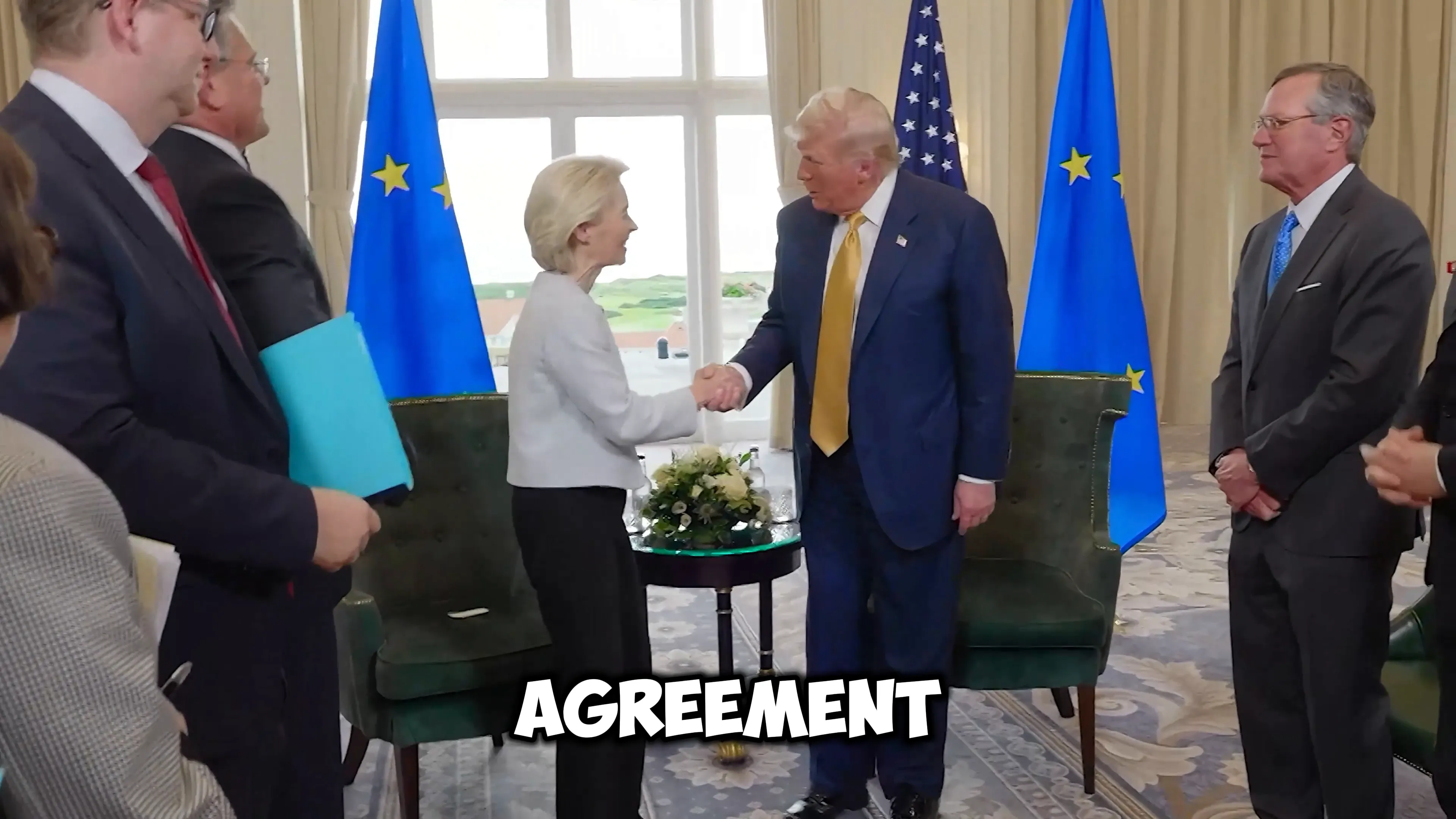
Orbán further questioned the feasibility of the deal’s financial commitments, pointing out that the European Commission lacks capital. “On whose behalf did it make an agreement? Will the German Chancellor bring that money or the French President or will the Hungarian Prime Minister send capital?” he asked, highlighting the ambiguity of the agreement’s financial underpinnings.
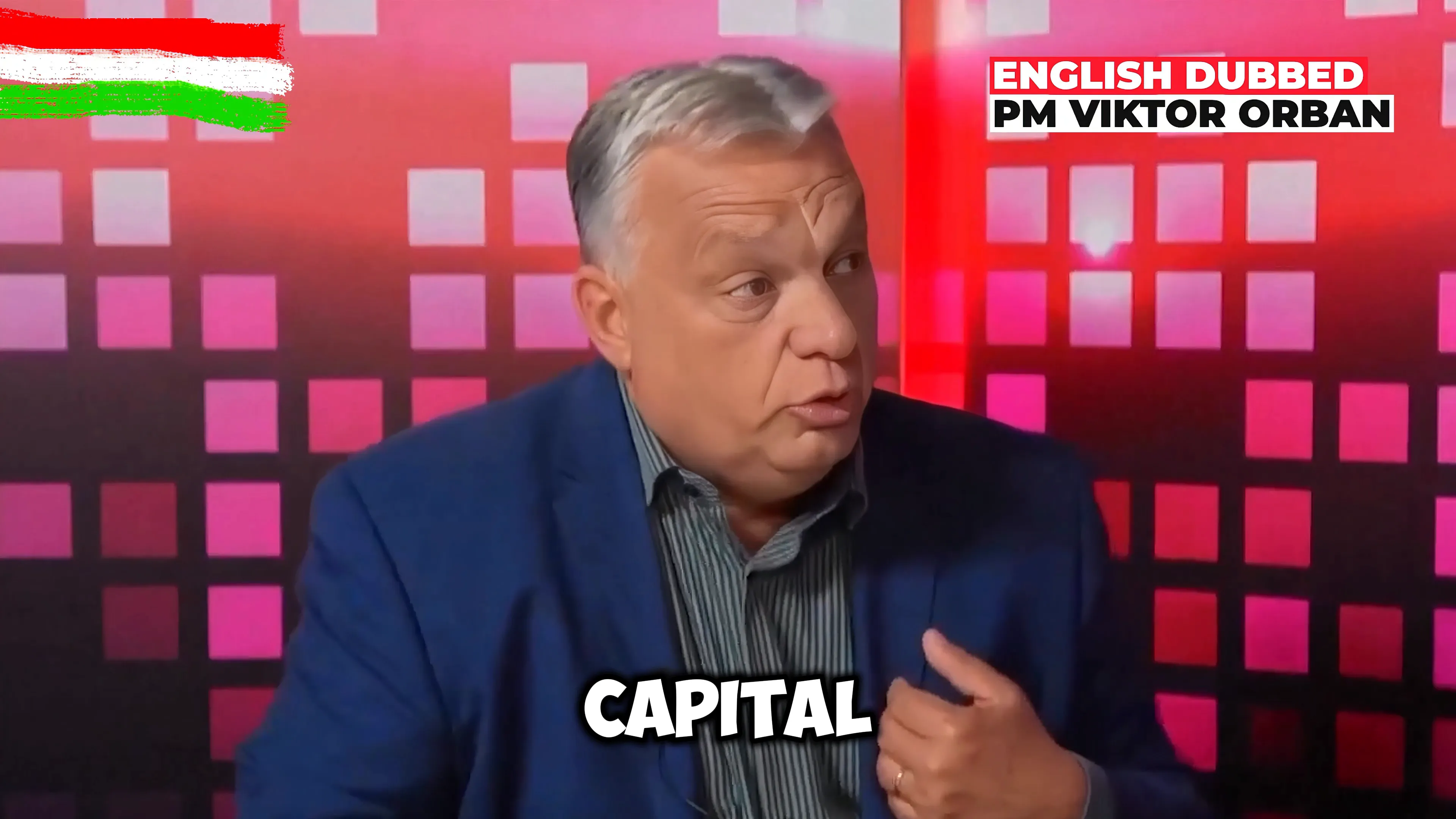
He also expressed skepticism about the claim that Europe would purchase hundreds of billions of dollars in weapons, noting that the Commission does not have an army and therefore cannot buy weapons. Orbán’s critique underscores the challenges of presenting this agreement as a concrete, actionable deal.
Von der Leyen’s Optimism and the Challenge of Fairness
In contrast to Orbán’s skepticism, European Commission President Ursula von der Leyen took a more measured and optimistic tone. She acknowledged the significance of the talks, describing them as potentially “the biggest deal each of us has ever struck.” Von der Leyen expressed eagerness to engage in detailed discussions, noting that their teams had already done much of the groundwork.
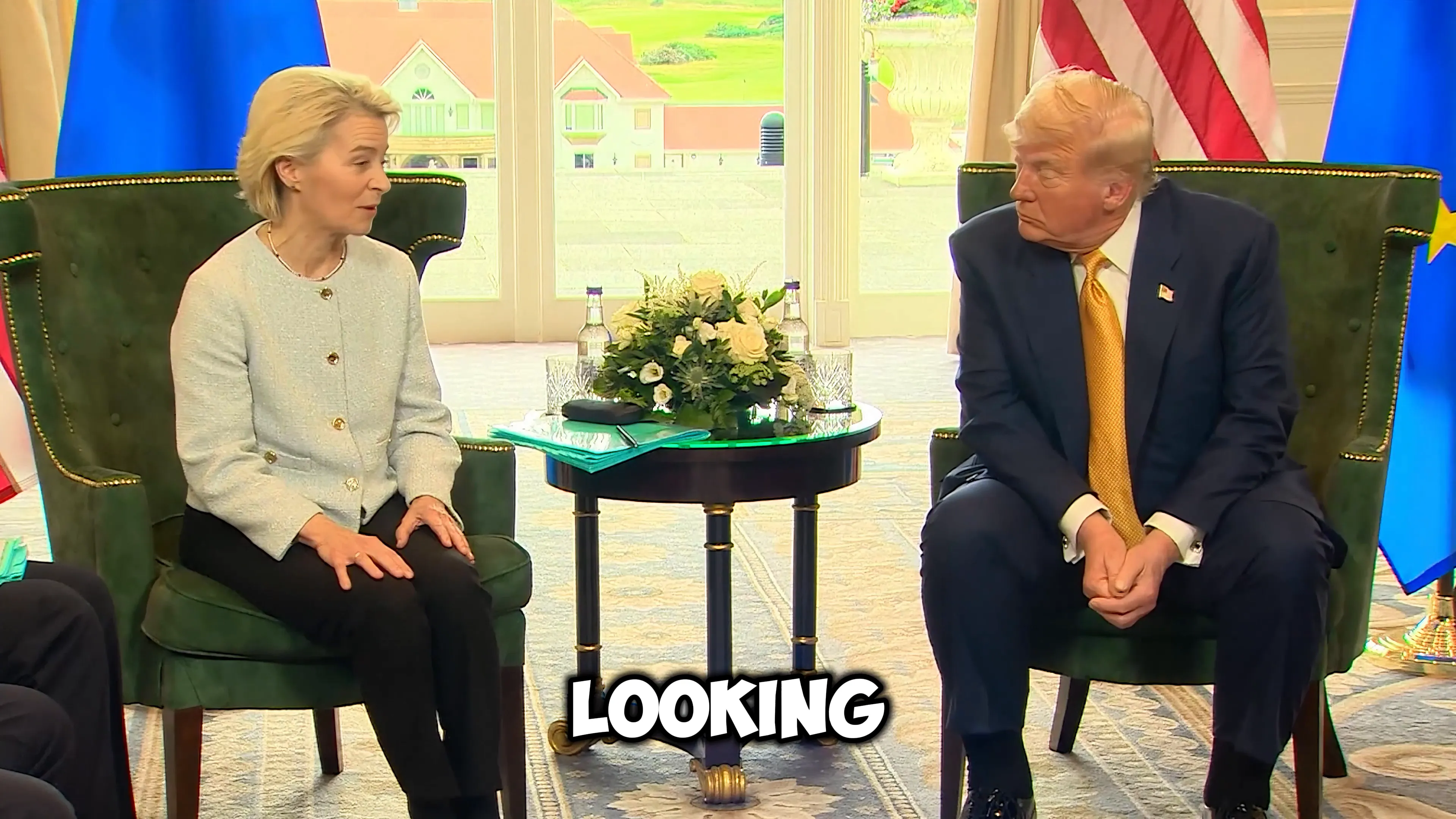
When asked about the chances of reaching a deal, von der Leyen agreed with the assessment of a 50/50 probability, emphasizing that the core issue was fairness—specifically, rebalancing trade between the EU and the US. “We have a surplus. The United States has a deficit, and we have to rebalance it,” she explained. She stressed the importance of making the trade relationship sustainable given the large volume of commerce between the two economic powers.
Trump’s Firm Stance on Tariffs and Migration
President Donald Trump was unequivocal when questioned about tariff rates, refusing to lower the 15% tariff rate on EU goods. His firm stance reflects his broader approach to trade negotiations, emphasizing protection of American interests.
On the subject of migration, Trump acknowledged Europe’s challenges but contrasted them with the US situation. “We’ve sealed our borders, and we have nobody coming in,” Trump said, adding that the US has been actively removing undesirable individuals. He predicted that Europe would face similar outcomes but suggested America’s approach was more effective and swift.
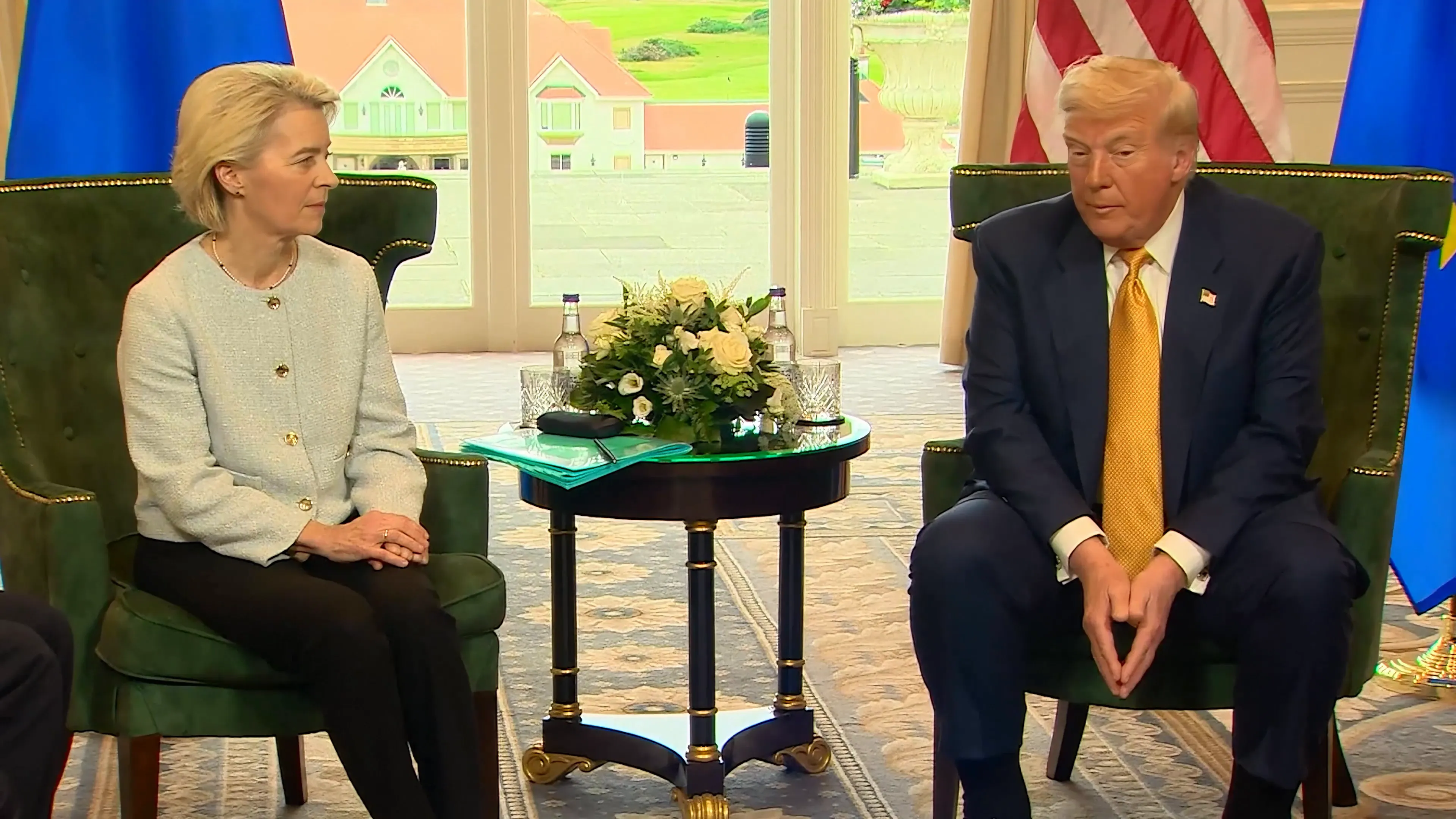
Von der Leyen responded by reaffirming Europe’s commitment to managing migration as a European challenge needing a unified response. She emphasized that Europe decides who enters its borders, not smugglers or traffickers, and vowed to uphold international obligations.
Trump’s Criticism of Wind Energy and Environmental Policies
One of the more controversial segments of Trump’s remarks focused on wind energy. He criticized windmills as “the most expensive form of energy,” claiming they are primarily manufactured in China and environmentally damaging. Trump argued that windmills ruin landscapes, kill birds, are noisy, and require subsidies, which he believes energy production should never need.
He went further to accuse environmentalists of being political rather than genuinely concerned with conservation, calling them “political hacks” who aim to harm the country. Trump praised countries that have banned windmills and reiterated his administration’s stance against allowing them in the United States.
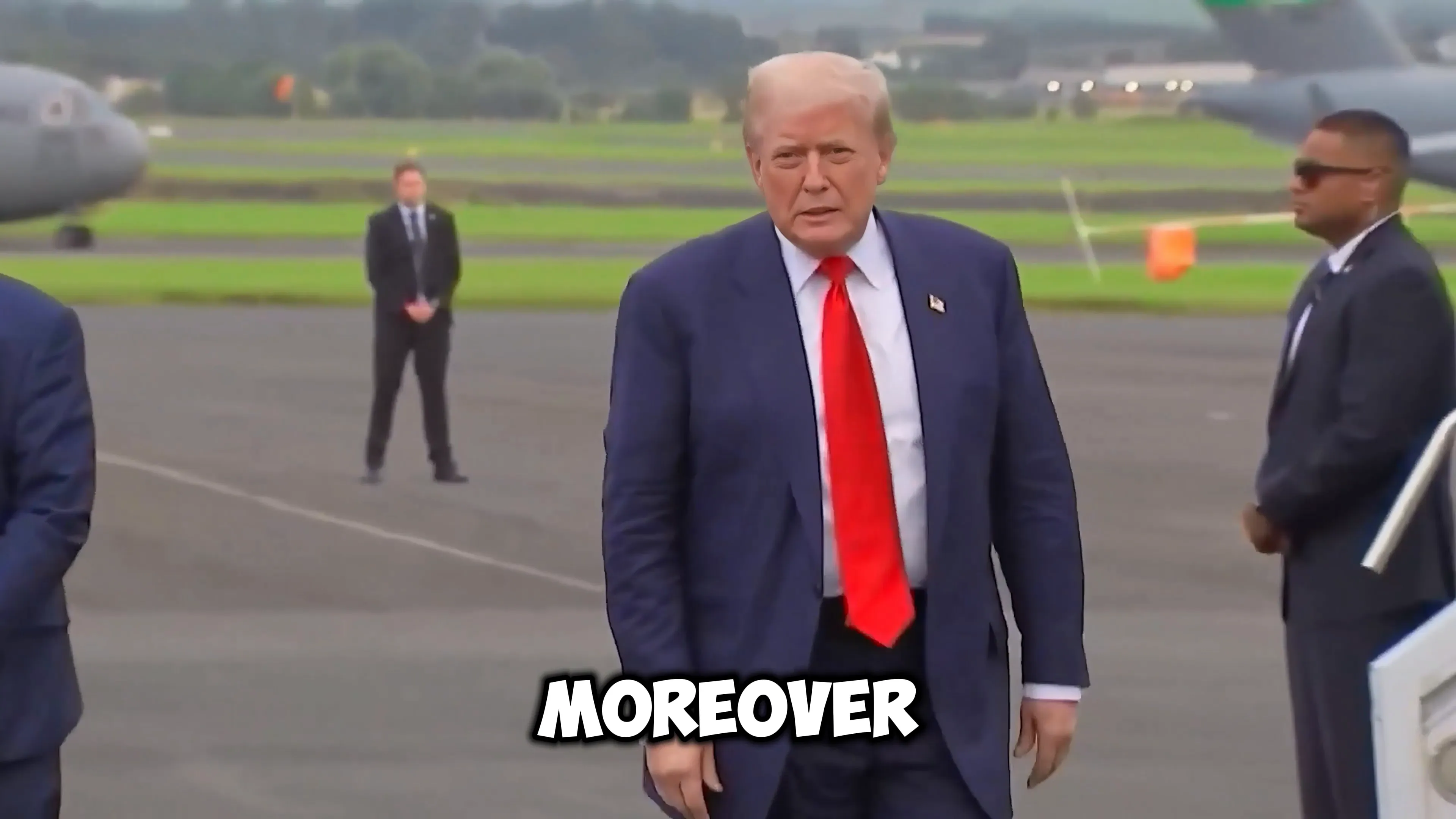
NATO Meeting: Trump Highlights Increased Defense Contributions
Trump also highlighted a recent NATO meeting where member countries agreed to increase their defense spending from 2% to 5% of GDP, a significant jump from previous commitments. He praised the spirit of cooperation and the quality of the meeting, calling it one of the best he had attended.
He noted that many countries had failed to meet even the 2% target, and the increase to 5% was a positive development for the alliance. Trump also mentioned ongoing military support for Ukraine as part of NATO’s agenda and expressed satisfaction with the improved relationships forged at the summit.

Conclusion
The exchange between Viktor Orbán, Ursula von der Leyen, and Donald Trump reveals the complex and often contentious nature of transatlantic relations. Orbán’s sharp critique underscores skepticism about the EU’s negotiating power and financial commitments, while von der Leyen’s cautious optimism highlights the desire for a fair and sustainable trade partnership. Trump’s assertive stance on tariffs, migration, energy, and defense spending reflects his administration’s priorities and approach to international diplomacy.
This candid discussion offers valuable insights into the challenges and opportunities facing the EU and the US as they navigate trade, security, and environmental issues in an evolving global landscape.
